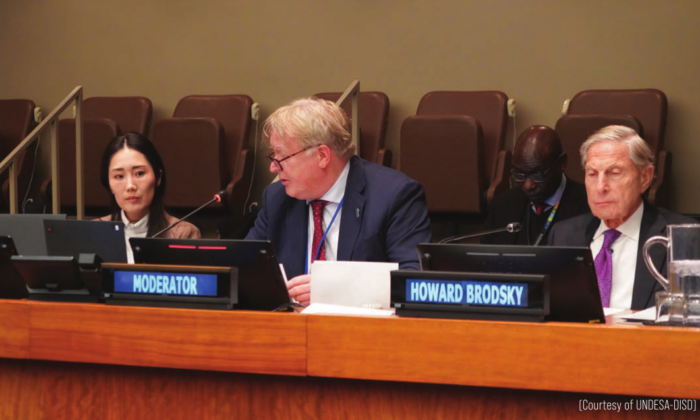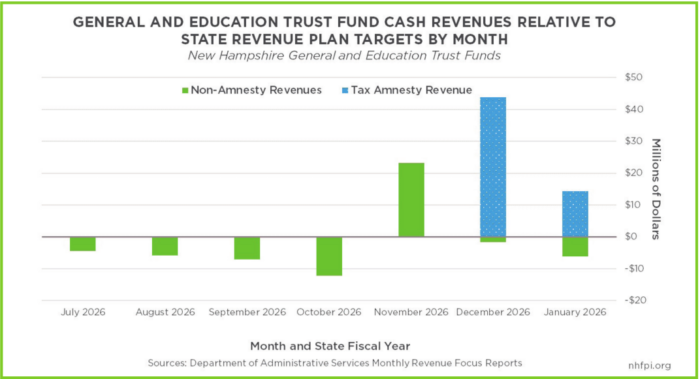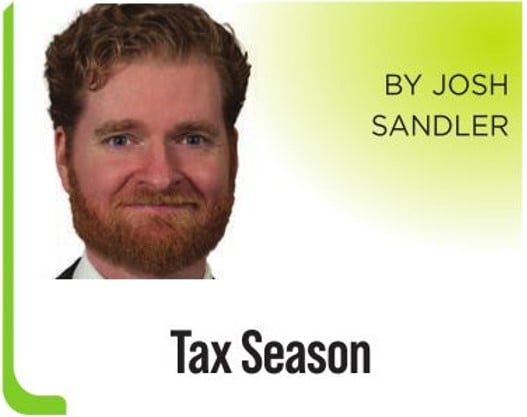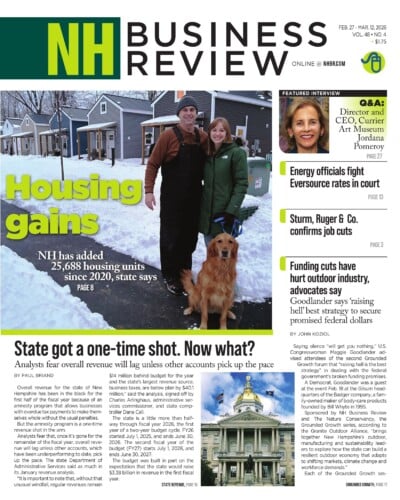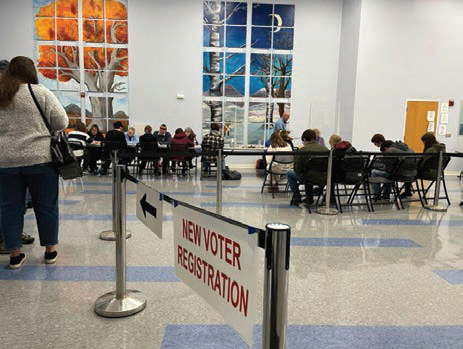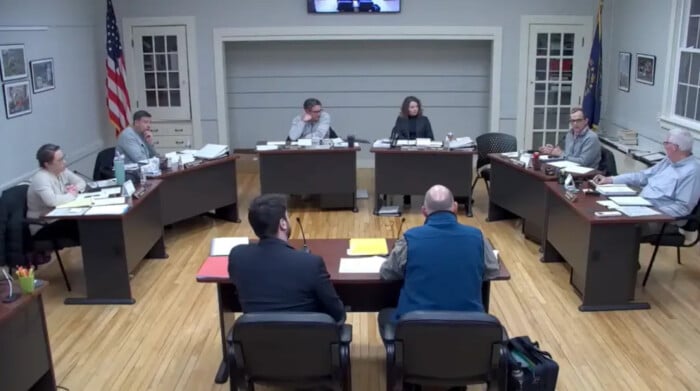 Retirement is one of the most important financial goals for many married couples. It’s something you may dream about and work hard to reach. But, even if you feel like you are on track in terms of meeting your financial objectives, there is an equally important factor to consider: Are you both on the same page about your vision and plans for retirement?
Retirement is one of the most important financial goals for many married couples. It’s something you may dream about and work hard to reach. But, even if you feel like you are on track in terms of meeting your financial objectives, there is an equally important factor to consider: Are you both on the same page about your vision and plans for retirement?
For example, what if your ideal experience in retirement is to travel, but your spouse is looking to stay local to be near family. Have conversations in advance of retirement to make sure you and your spouse are on the same page.
The years leading up to retirement are an important time to compare their ideas and see if there are any obvious conflicts. Among the different topics to address:
- When you plan to retire: If one spouse wants to work longer than the other, that may be fine if the spouse who retires earlier can pursue other activities in the interim. But if your plans are dependent on being together, you’ll want to come to an agreement on when your actual retirement together will begin.
- Where you plan to live: This is a critical issue that requires a mutual understanding. Will you stay in your current home or geographic location? Do you plan to spend winters in a warmer climate? What are your thoughts on living abroad? Make sure you have a plan that works for both of you.
- Your vision of a retirement lifestyle: What will keep you occupied in retirement? Are there activities that you will both enjoy, or are you fine with pursuing aspects of retirement independently? The more you define this in advance, the better prepared you’ll be.
Don’t be alarmed if you and your spouse don’t have the exact same idea of how retirement should work for you. It isn’t unusual. What’s important is finding ways to come to an agreement. That may mean each side has to give a little to make it work.
Flexibility is also key. Once the reality of retirement sets in, either person’s viewpoint might change and that could affect your decisions. Be prepared for the potential that a medical event could alter your plans, as this is more likely to be a factor as you grow older. Your financial circumstances are also always a consideration. Have a discussion with your financial advisor about your retirement plans and try to have an agreed-upon strategy in place before you wrap up your working years.
 Filling a retirement savings gap
Filling a retirement savings gap
Are you on track to achieve your retirement savings goals? It’s important to establish a target savings amount and regularly make retirement plan contributions. It’s also vital to regularly check your progress so you know if you are on the right track. Should you determine that you are falling behind on your savings goals, it’s time to try to rectify the situation.
Any or all of the following solutions can help you overcome a retirement savings gap:
- Boost your savings: The first option to make up for a retirement shortfall is to boost your savings. For example, if you set aside $200 more per month in your retirement accounts, that could add up to more than $63,000 in 15 years (assuming a 7 percent average annual return before fees and taxes). Find that money by reducing current living costs, particularly discretionary expenses. You may want to refinance your mortgage to reduce house payments or transfer balances on high interest credit cards to lower your monthly payouts. Be sure to take full advantage of an employer’s matching contribution to a workplace retirement plan if you have access to one.
- Upgrade your investments: For most people, time is on their side when investing retirement assets. This provides flexibility to invest your money in a way that can generate a competitive return because you have time to overcome short-term market fluctuations. If your savings isn’t generating the return you expected, you may want to reassess your holdings and seek out a combination of investments that have the potential to earn a higher return within your tolerance for risk.
- Move your retirement date: You can choose to take more time to meet your retirement savings goal. That might mean working longer than you initially expected and continuing to set money aside to close the savings gap. If you planned to retire in your 60s or earlier, you should have some room to maneuver. Assuming you are in good health, adding a year or two of work may be feasible.
- Adjust your retirement expectations: If you are too close to retirement to make a significant dent in your retirement savings gap, you may need to adjust lifestyle expectations when you are done working. Take a closer look at your retirement income needs and determine where you can cut back on discretionary expenses in the years to come.
- Look for help: Even if retirement is a long way off, you want to stay on top of your progress and make sure you are taking all of the steps you can to make your goals a reality. Talk to a financial advisor to help you assess where you stand and what you can do to avoid or erase a savings gap.
Keeping up with rising healthcare costs
For most of us, the reality of growing older means that medical issues will likely become a more common concern. As a result, healthcare can become a prominent expense in retirement. Medicare typically serves as the foundation of your health insurance later in life, as it starts at age 65. If you retire prior to age 65, you’ll find insurance coverage to be expensive, with significant, potential out-of-pocket costs.
For most, healthcare expenses become greater as they grow older. According to statistics compiled by the Kaiser Family Foundation, annual health spending for the average woman is $11,694 for those ages 65 and up. This compares to average annual expenditures of $8,343 for those age 55-64, and $5,775 for women ages 45-54. Spending patterns are similar when comparing costs for those different age groups among men.
At the same time, changes in healthcare costs in general tend to outpace the standard rate of inflation. Rapidly rising healthcare costs can quickly eat away at your retirement savings as you age.
The reality is that while Medicare helps make health insurance much more affordable for older Americans, it is far from free. You will pay premiums for Medicare Part B (doctor’s visits and other care services). The premiums typically rise each year. If you choose Medicare Part D (prescription drug coverage), there is an additional premium, but that should be offset by lower drug costs. You may also choose to purchase a Medicare Supplemental Insurance plan that could add hundreds of dollars to your monthly budget but limit other out-of-pocket expenses.
Good planning can help you prepare for the challenges posed by medical costs in retirement. Potential steps to address this issue include:
- Reviewing your current savings strategy to make sure you are setting enough money aside to meet all of your expenses in retirement.
- Enrolling in a health insurance plan that includes a Health Savings Account (HSA). Money saved in the account can grow on a tax-advantaged basis, and dollars you don’t use today can be applied toward healthcare expenses in retirement.
- Earmarking a portion of your savings to specifically pay for medical costs in retirement, including insurance premiums and out-of-pocket expenses. This helps you avoid overspending in other areas and putting your future health coverage at risk.
- Consider exploring long-term care insurance to determine whether or not it makes sense for your situation.
Be sure to consult with your financial advisor to learn more about the potential financial challenges you face with healthcare in retirement and to explore steps you should take today.
Bob Bonfiglio is a private wealth advisor and managing director with Rise Private Wealth Management, a private wealth advisory practice of Ameriprise Financial Services Inc. in Bedford. He can be contacted at bobbonfiglio.com or by calling 603-606-4255.
 Retirement is one of the most important financial goals for many married couples. It’s something you may dream about and work hard to reach. But, even if you feel like you are on track in terms of meeting your financial objectives, there is an equally important factor to consider: Are you both on the same page about your vision and plans for retirement?
Retirement is one of the most important financial goals for many married couples. It’s something you may dream about and work hard to reach. But, even if you feel like you are on track in terms of meeting your financial objectives, there is an equally important factor to consider: Are you both on the same page about your vision and plans for retirement? Filling a retirement savings gap
Filling a retirement savings gap
